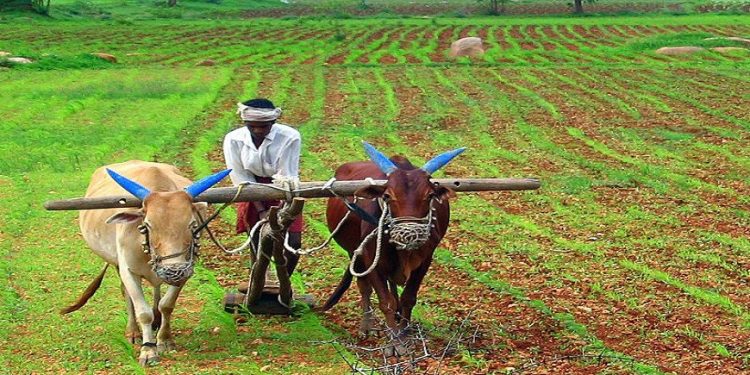Shivaji Sarkar
Indian agriculture is a complex mix. It has myriad problems and the solutions suggested are often not practical. Interestingly, the largest beneficiaries of the food dole to the 80 crore poor are the producers of the food grains!
It is a dichotomy. Often, in terms of agriculture, privatisation, private investment and handing it over to private hands become the policy plank. The more this is discussed and “reformed” through ordinances, the government is getting more enmeshed in it by direct benefit transfers – Rs 6,000 pension for farmers and dismantling their mandis (local wholesale markets) under the agriculture produce committees (APMC), easing Essential Commodities Act and facilitating contract farming.
The policy confusion is apparent. The first major agriculture reform was the Green Revolution, creation of mandis and setting up the FCI for procurement, creating buffer stock and distribution. It has its pluses and some minuses too. Except at purchasing level, the government is not involved.
Farmers still are making their own investments, may be now through bank support extended by the kisan credit card or simply bank loans. Government institutions selling seeds, fertilizer or other support do it at commercial rates and a bogey had been created that the farmers are dependent on the government. The mandis, despite many flaws, served them well and assured payments. The mahajan (moneylender) system found their roles limited, but not eliminated.
The Sukhis are still there for smaller tillers who do not find it easy to have bank support. The new ordinances are euphoric about a pan-India market – a complex and expensive system, “larger” involvement of private sector, a euphemism for multinational involvement in the farm sector, which is operating for almost two decades through various “cash and carry” wholesale trade. Some Indian firms too have entered the scenario. In Kashmir, some companies have monopolised apple trade through their leased orchards; in other places, motley groups manage partially grape, orange, mango and spices trading.
Many have emerged as parallels of FCI. But, farmers have a concern. They become their pawn and alternative support is difficult once a contract is signed. The ordinances for demolition of this alternative are a concern for many farmers’ organisations. Again it is all private investment that most official functionaries take pride in. That is the plus and minus. The plus is “investment”. The minus is it creates a larger chunk of farmers looking for direct government support for survival.
The lockdown has opened up the chinks. The government is trying to correct it through enormous stock it built in FCI warehouses through the years of toil. It is distributing food grain worth Rs 1.5 lakh crore for free till at least November 2020, from April onwards for over 60 per cent of the population.
Despite years of deliberations, the nation has got into the same quagmire of government support to farming instead of promoting individual farmer’s capabilities. The APMC mandis have flaws though it is a robust system. Since it is still an ordinance, the policymakers need to relook at this for removing the flaws but prevent its demolition. The ordinance should for now not be enacted into statutory law.
Over the years, corporate cartels have created lobbies to control the base of Indian economy – agriculture. It is profit-oriented, but at the cost of sustenance of the farming community. The farmers need monetary support all through the year. They need small credits. This is provided by buyers at mandis and adjusted against final sales. The payments to farmers are assured in the system. Yes, this creates a kind of bondage too. There are instances of it being exploited as well.
The pan-India market is there in mandis as well. Many farmers have taken their produce from Punjab to sell at Bihar mandis for better price. The present ordinances try to legalise that but creating monolith of large corporate players. Politically it suits various operators as election funding in bulk is assured. Practically, the nation is creating a convoluted system, where the involvement of the government at micro level would increase.
There is another apprehension. Sizeable sections of the farmers may be controlled through Vikas Dubey-type goons creating severe law and order issues – in short perpetuation of more powerful Sukhis and dumping more costs on the state. INFA






































